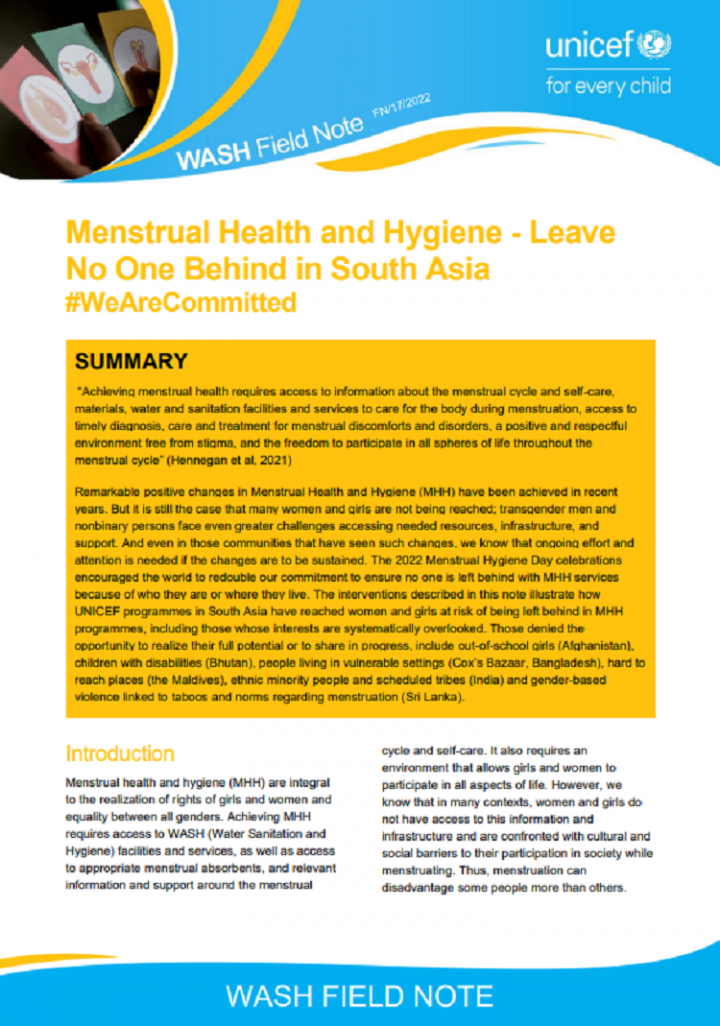
Published in: 2022
Pages: 11
Publisher:
UNICEF
Uploaded by:
SuSanA Admin
Partner profile:
common upload
1138 Views
33 Downloads
“Achieving menstrual health requires access to information about the menstrual cycle and self-care, materials, water and sanitation facilities and services to care for the body during menstruation, access to timely diagnosis, care and treatment for menstrual discomforts and disorders, a positive and respectful environment free from stigma, and the freedom to participate in all spheres of life throughout the menstrual cycle” (Hennegan et al, 2021)
Remarkable positive changes in Menstrual Health and Hygiene (MHH) have been achieved in recent years. But it is still the case that many women and girls are not being reached; transgender men and nonbinary persons face even greater challenges accessing needed resources, infrastructure, and support. And even in those communities that have seen such changes, we know that ongoing effort and attention is needed if the changes are to be sustained. The 2022 Menstrual Hygiene Day celebrations encouraged the world to redouble our commitment to ensure no one is left behind with MHH services because of who they are or where they live. The interventions described in this note illustrate how UNICEF programmes in South Asia have reached women and girls at risk of being left behind in MHH programmes, including those whose interests are systematically overlooked. Those denied the opportunity to realize their full potential or to share in progress, include out-of-school girls (Afghanistan), children with disabilities (Bhutan), people living in vulnerable settings (Cox’s Bazaar, Bangladesh), hard to reach places (the Maldives), ethnic minority people and scheduled tribes (India) and gender-based
violence linked to taboos and norms regarding menstruation (Sri Lanka).
Bibliographic information
(2022). Menstrual Health and Hygiene - Leave No One Behind in South Asia. UNICEF
Filter tags
Menstrual Health and Hygiene (MHH) Sexual and gender minorities South Asia















